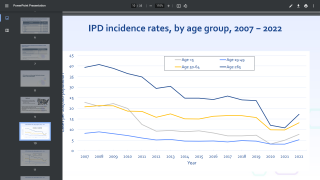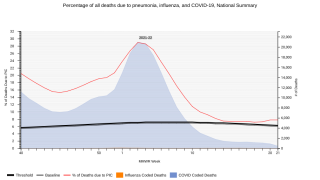How Can Pneumococcal Immunization Improve?

A recent study focused on patients who should have received the pneumococcal immunization but had not.
The rates of non-vaccination were 29.8 percent in patients with diabetes, 58.7 percent in patients with asthma, and 62.5 percent in patients who smoke cigarettes.
This study indicated that primary care providers often fail to encourage vaccination against pneumococcus in patients who had asthma or were active smokers.
These researchers identified 3 reasons why patients were not vaccinated:
- The care provider did not recommend vaccination during a visit,
- The second common reason was ‘refusal by the patient’,
- Misclassified patients who had definite medical indications for pneumococcal vaccine, but considered as “low risk.”
The study also reported that physician assistants were less likely than medical residents or medical faculty to vaccinate patients deemed eligible.
But, pharmacists embedded in the family practice clinics were most likely to vaccinate patients. Pharmacists who participated in the study were able to spend more time with patients as they manage chronic conditions.
Each year in the United States, pneumococcal disease kills thousands of adults, including 16,000 adults 65 years or older.
While most people have heard of pneumonia, which is an infection of the lungs. Pneumococcus is one of the most common causes of severe pneumonia.
Pneumococcal disease is an infection caused by Streptococcus pneumoniae bacteria, sometimes referred to as pneumococcus. Pneumococcus can cause many types of illnesses, including ear infections and meningitis, reports the Centers for Disease Control and Prevention (CDC).
The best way to prevent pneumococcal disease is to get the vaccine(s).
Pneumococcal vaccines help protect against some of the more than 90 types of pneumococcal bacteria.
The pneumococcal conjugate vaccine (PCV13 or Prevnar 13) protects against the 13 types of pneumococcal bacteria that cause most of the severe illness in children and adults.
The PCV13 vaccine can also help prevent some ear infections. CDC recommends PCV13 for all children at 2, 4, 6, and 12 to 15 months old. CDC also recommends PCV13 for adults 19 years or older with certain medical conditions and for all adults 65 years or older.
The pneumococcal polysaccharide vaccine (PPSV23 or Pneumovax 23) protects against 23 types of pneumococcal bacteria.
The CDC recommends this vaccine for all adults 65 years or older. It is also recommended for children and adults 2 through 64 years old who are at increased risk for pneumococcal disease.
Because there are more than 90 known pneumococcal serotypes (strains or types) that cause disease, a previous pneumococcal infection will not protect you from future infection.
Therefore, CDC still recommends pneumococcal vaccines for children and adults who have had pneumococcal disease in the past.
Most private health insurance policies cover pneumococcal vaccines. Medicare Part B also covers 100 percent of the cost for both pneumococcal vaccines.
The CDC Vaccine Price List provides private sector vaccine prices for general information. Vaccine discount information in the USA can be found here.
Vaccines, like any medicine, can have side effects, says the CDC. You are encouraged to report negative side effects of vaccines to the FDA or CDC.
These researchers did not disclose any conflicts of interest: Anthony Trovato, PharmD, Karen Gunning, PharmD, BCPS, BCACP, Karly Pippitt, MD, FAAFP. Corresponding Author: Anthony Trovato, University of Utah Health, [email protected]
Our Trust Standards: Medical Advisory Committee

























